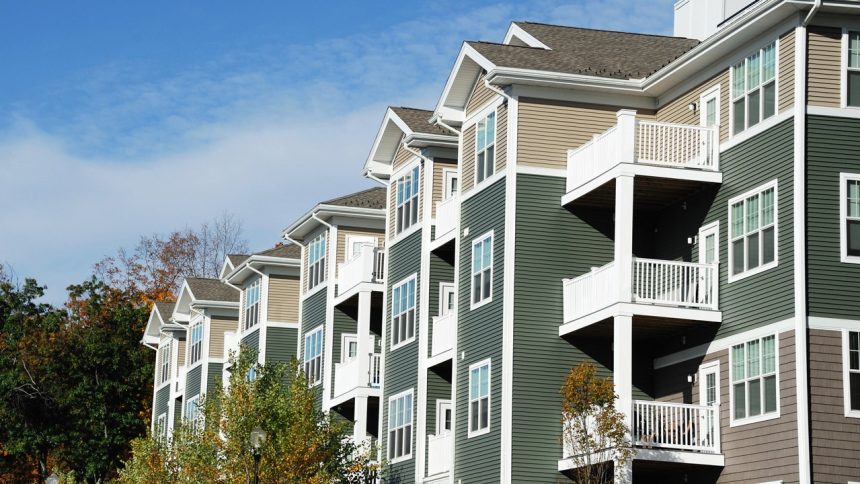If you are renting an apartment for the first time, there are likely many questions swirling in your mind.
You may be wondering how much you should be spending on rent. You could be curious about the potential extra costs beyond rent. Perhaps you’re worried about being approved for the apartment you want to call home.
When it comes to being approved for an apartment, don’t let your lack of prior rental status deter you from beginning the process. There are plenty of things you can do to prove yourself as a reliable tenent and help you quickly get approved.
RENTAL PRICES MAY BE LOWER IN WINTER BUT BEWARE THAT OPTIONS MAY BE LIMITED, EXPERT SAYS
Find tips below on how to get approved for an apartment and other key aspects of the apartment search to be mindful of.
- How to get approved for an apartment as a first-time renter
- What should I ask before signing a lease?
- How much should I spend on rent?
1. How to get approved for an apartment as a first-time renter
One of the biggest hurtles to get over when renting for the first time is displaying yourself as a reliable tenant without any prior renting experience.
Typically, in the application process for an apartment, potential tenants interested in the property are asked to submit one or more recommendations from past landlords.
THESE 5 CITIES HAVE HIGHEST RENT FOR 1-BEDROOM APARTMENTS
If you are required to submit references but don’t have any rental history, there are ways to get around this issue.
“Without any rental history it could be a bit challenging, but there are other ways that can convince the landlords, such as providing more personal references, proof of income, increasing the security deposit, offering to pay more rent in advance, or finding a roommate with good rental history or a co-signer,” Jiayi Xu, economist with Realtor.com, told Fox Business in an email.
Another troublesome aspect that could come up in the application process is credit score.

To get approved for a rental, a credit score of 650 or higher is generally where you want to be, Xu advised, as 650 is typically the minimum score that landlords require of tenants.
It often takes a long time to build a good credit score. That said, making sure bills are paid on time and keeping your credit balances low can help to improve your score, according to Xu.
TO RENT OR TO BUY? WHAT TO CONSIDER WHEN DECIDING BETWEEN A HOUSE OR APARTMENT
2. What should I ask before signing a lease?
Before you sign a lease, the first step is to tour apartments, if you have the time.
Pictures can be deceiving. Plus, factors like noise level and overall cleanliness aren’t things you can spot through a screen.
Going in person to tour apartments can give you a much better idea of what you should expect and will make you feel more confident in signing the lease.

While you are touring apartments, there are several key questions you should ask. Xu highlighted questions like “Is there free parking?” and “Who is responsible for covering utilities?” as ones worth asking.
VET POTENTIAL TENANTS WHO HAVE APPLIED TO LIVE IN YOUR RENTAL PROPERTY WITH THESE TIPS
Fees like this can quickly add on to your overall monthly costs.
Xu also recommended asking about the amenities that are offered. Many apartments have fitness centers, pools and community rooms for guests to take advantage of. If this is something that is important to you in your new home, it’s absolutely worth asking about.
You can also inquire about whether there are any additional fees to use the amenities, as some places do charge for those extra features.

Xu said to ask if there are any restrictions on guests as well as who should be contacted in the event of a maintenance concern.
If you have pets, make sure you ask about the pet policy, Xu said, and ask about any potential fees for having a pet.
There are also some hidden costs that are important to ask about and keep in consideration, like “renter insurance, late fees, cleaning fees when moving out, and renewal fees when the lease ends,” according to Xu.
3. How much should I spend on rent?
One common method for how much should be spent on rent is the 30% rule.
“One approach to measuring rental affordability is the 30% rule of thumb,” Xu explained.
“According to this rule, a household should spend no more than 30% of its gross income on housing costs,” Xu continued. “The U.S. Department of Housing and Urban Development uses this approach. HUD defines cost-burdened households as those paying more than 30% of gross income on housing (including utilities) and severely cost-burdened households as those paying more than 50% of their income on rent (including utilities).”
Read the full article here




